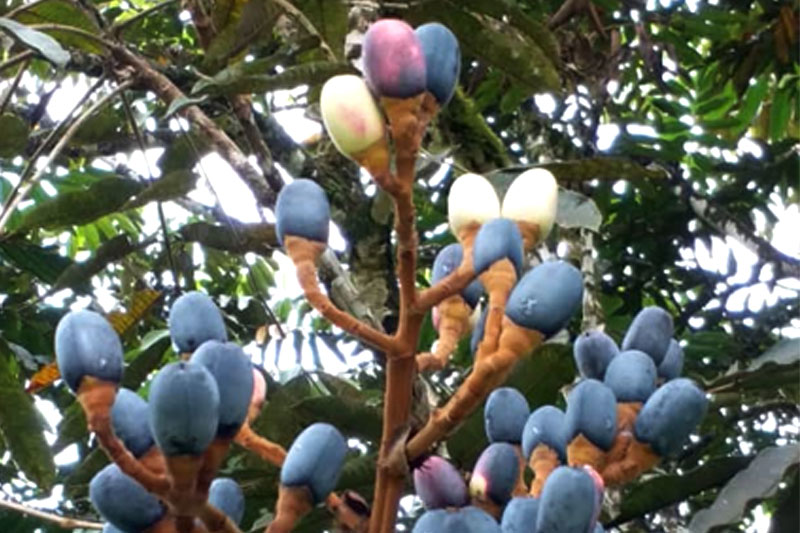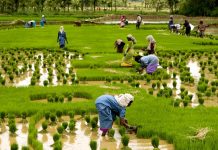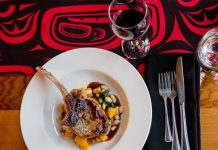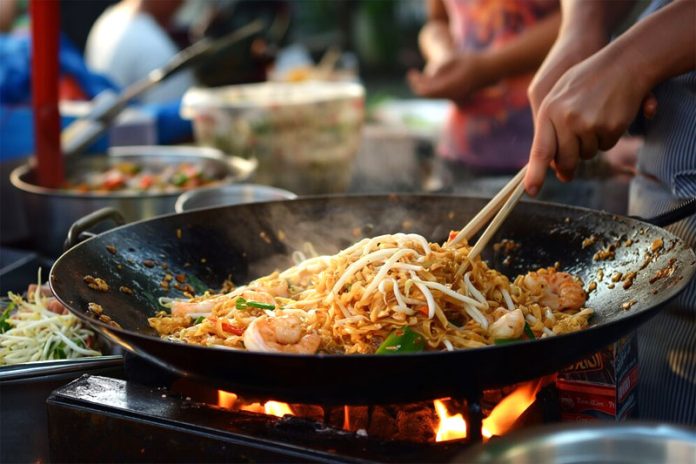
When words fail, food speaks: From Bangkok to Seoul to Ho Chi Minh City, food bridges language gaps, offering rich cultural rewards and unforgettable connections.
In Bangkok’s Chatuchak Market, I stand before a vendor grilling skewers of meat. The air hums with the scents of lemongrass, garlic, and chili. My Thai is limited, his English even more so, but with a nod toward the skewers, we make the connection. Which one?
A silent exchange—no words necessary. This is the power of food travel.
As English fades in many parts of the world, food becomes the common language. From Bangkok to Seoul to Ho Chi Minh City, travellers rely on food to connect with culture, transcending language barriers and communicating through senses.
The Universal Language of Food
At Chatuchak, food is more than sustenance—it’s an experience. The sizzle of meat on the grill, the steam rising from sticky rice, the vibrant vegetables in the heat—all of it guides you through the market. I point to a plate of Pad Thai, golden noodles tangled with lime, peanuts, and tamarind.
Moments later, a steaming portion is handed over. The flavours hit immediately—tangy lime, nutty peanuts, and the perfect balance of sweet and savory. The vendor smiles, and I trust him.
In Seoul’s Gwangjang Market, food connects in its own way. I’m presented a hot, golden bindaetteok—a crispy mung bean pancake stuffed with savory pork and vegetables.
It’s hearty, satisfying, and unexpectedly complex, with each bite offering a perfect balance of crispy exterior and rich, tender filling. Here, as in Seoul, a simple gesture replaces words. Trust is built through the food.
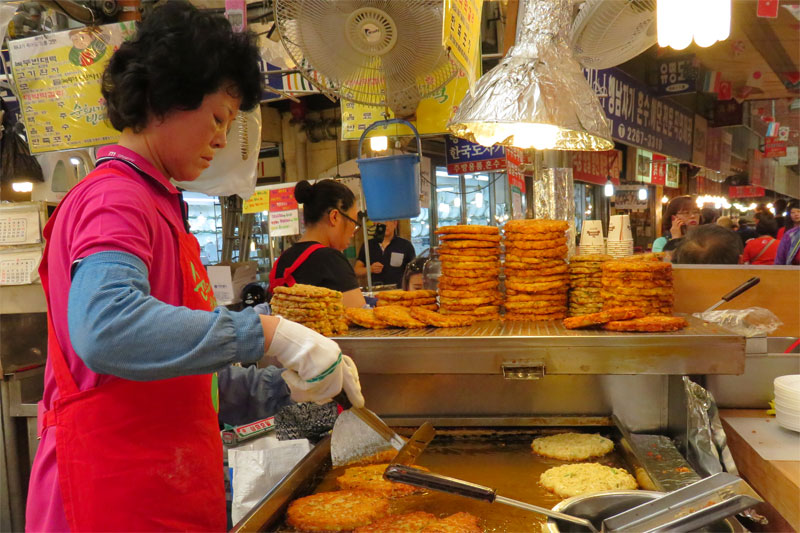
Further south in Ho Chi Minh City, the language barrier is even stronger. But as I watch locals navigate the street food scene with ease, I mimic their movements.
When a bowl of pho arrives, steam rising with the aroma of star anise and cinnamon, I instinctively know how to savour it. The broth is rich, full of depth, and the experience feels like a dance—slow, deliberate, and deeply satisfying.
Food as the Heartbeat of Culture
What unites these markets is how food fosters a universal connection. The absence of a shared language doesn’t hinder the experience; it enhances it. Each dish tells its own story, offering a window into local culture and tradition. The food doesn’t just fill you—it reveals a place, a history, and a way of life.
Embracing this food-first approach can be intimidating at first. The unfamiliar menus, the lack of a common tongue—but these challenges are part of the adventure.
Without relying on words, you engage more deeply with your surroundings. You rely on your senses—the heat of the grill, the smell of spices, the texture of noodles—and, in turn, build a more intimate connection to the culture.
There will be moments of miscommunication, a wrong order or an unfamiliar dish. But those moments are often the most memorable. They invite you to let go of expectations, to lean into the unpredictability of the experience, and trust that the food will guide you.
Opportunity of Declining English Proficiency
The 2024 EF English Proficiency Index reveals a global decline in English proficiency, which presents an opportunity. Countries like South Korea and Vietnam are showing lower levels of English fluency, making food an even more vital bridge.
As food travellers, we’re invited to explore not just the taste of a dish, but the story behind it.
In markets like Chatuchak, Gwangjang, and Ho Chi Minh City, food is the key to unlocking a deeper understanding of the place and its people.
So, next time you find yourself in a foreign market, surrounded by unfamiliar dishes and a language you don’t speak, remember: Trust the food.
It has a way of telling you more than words ever could. In that moment, food becomes a bridge, guiding you through the heart of a culture.









